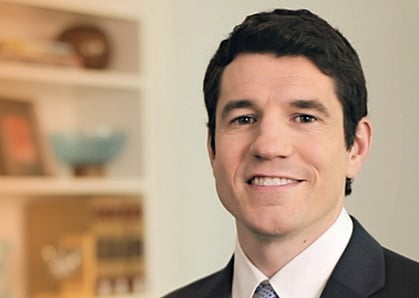A Key Deadline and Other Developments Looming for Condominiums
As we approach the end of 2024, several legal and economic developments are coming to a head for condominiums. From a key statutory deadline and long-awaited court rulings to an imploding market for older condominium units, here is what to watch for in the coming months as Florida’s condominiums try to balance new safety mandates against hard economic realities.
Deadline for Structural Integrity Reserve Studies
By Dec. 31, 2024, all residential condominium associations existing on or before July 1, 2022, must complete a structural integrity reserve study (SIRS) for each building on the condominium property that is three stories or higher in height. The associations must then prepare an annual budget based on the findings and recommendations in their most recent SIRS.
However, there appears to be multiple reasons why these SIRS might not be finished for many—or even most—condominiums by the end of this year. As a practical matter, there are simply not enough inspectors to complete these studies for all of the applicable condominiums. Granted, the 2023 amendment to Section 718.112(2)(g)2, Florida Statutes, expanded the small pool of qualified architects and engineers to also include any persons certified as reserve specialists or professional reserve analysts by the Community Associations Institute or the Association of Professional Reserve Analysts. But even with that expansion, the pool of inspectors remains too shallow.
In addition, the new law might not have enough bite. If the association does not complete a SIRS and/or adopt a budget based on its SIRS, there are no direct, statutory penalties. It is true that any interested party—such as a unit owner—can file a complaint with the Division of Florida Condominiums, Timeshares and Mobile Homes (division) if the budget does not adequately account for the SIRS. But it is possible that none of the association’s unit owners will want to raise this issue to the Division, because it will likely result in the unit owners facing a larger budget or special assessments to fund the reserves.
It is also uncertain how aggressive the division will be in responding to such complaints, especially in the near future. Failing to obtain a SIRS will be deemed a dispute for purposes of mandatory arbitration beginning on July 1, 2027, but until then, there is the option of starting with a civil suit. In other words, unit owners can immediately sue their association for failing to comply with the statute. But as with any civil litigation, such a suit could take years to resolve given the current backlog in state courts. This is especially so where such suits must be brought as derivative actions, which require plaintiffs to satisfy additional presuit requirements related to corporate procedure.
If associations do not obtain a SIRS and update their budget accordingly, it might ultimately be the marketplace—rather than any statute or lawsuit—that forces their hand. The values of older condominium units are already tanking in the wake of concerns over safety issues, impending special assessments, rising insurance costs, and increasingly severe weather.
And when a condominium building fails to comply with the new statute and stockpile adequate reserves, buyers and lenders are likely to stay away—especially if comparable projects are in compliance. That, in turn, might lead even more lawsuits against condominiums associations and their boards, even as other unit owners in the same condominiums resist compliance because of the associated costs.
There could be additional changes in the next legislative session, but we will have to wait and see. As we have seen, new laws often result in unintended consequences that must be subsequently addressed (e.g., increased litigation might shrink the number of unit owners willing to volunteer on their association’s board of directors might further exacerbate a condominium’s decline).
Pending 'Biscayne 21' and Carillon Litigation
The legislature is not the only branch of government grappling with these thorny safety and economic issues. The courts here in South Florida are also facing these issues head-on, with multiple cases of note still pending.
Perhaps the most salient case is Biscayne 21. Back in March 2024, Florida’s Third District Court of Appeal (i.e., the appellate court for Miami-Dade and Monroe counties) ruled that a condominium declaration that requires unanimous approval to terminate a condominium cannot be amended without unanimous approval—despite a separate amendment provision that requires less than unanimous approval to amend the declaration. In other words, a super-majority of unit owners could not decide to terminate their condominium and sell the building to a redeveloper. The Biscayne 21 decision essentially means that one unit owner—who is perhaps more financially secure than others in the building—could stymie the efforts of all of their neighbors to leave the condominium behind.
For most of this year, the Third District has been considering a motion to rehear the case. Every week, interested bystanders—ranging from unit owners on both sides of the issue to developers and business groups that filed amicus briefs—wonder if the decision will finally come down. But as of the date of this article, there is still no indication as to when the court will issue a ruling, let alone what the ruling will be.
The Third District could simply deny the motion for rehearing and let the prior decision stand; it could also grant the motion and ultimately issue a new decision, which could go in a number of different directions. It’s important to remember that this appeal will not be the final word in the case (assuming the parties do not settle): the appeal was of an interlocutory order granting a preliminary injunction. The case still needs to proceed to a final judgment in the trial court, though whoever wins the pending appeal will likely be determined to have a “substantial likelihood of success on the merits” at an eventual trial.
Like Biscayne 21, the Carillon case currently resides in the Third District. But unlike Biscayne 21, Carillon is an old case that involves a single mixed-used property with residential units and a hotel. Pending since 2016, Carillon (along with the IconBrickell case) is one of the seminal condo litigation cases of recent years, involving a battle of control over portions of the property. On the one side, the condominium associations contend that certain portions of the hotel unit should be considered “common elements” within their control. On the other side, the hotel unit owner contends that such property should be considered “shared components” within its control.
In August of this year, Judge Thomas Rebull stayed the case pending guidance from the Third District on exactly which parts of the building had to be “common elements” versus which parts could be left as “shared components.” That appeal has not yet been fully briefed, meaning that a decision will not arrive until 2025.
The eventual decision might shed some light on the common element versus shared component issue, but it is also entirely possible that the court might not reach that issue. It is also important to note that the Carillon case’s final judgment predated Section 718.407, Florida Statutes, the new law clarifying many issues for condominiums created within a portion of a building or within a multiple parcel building (e.g., a condominium declaration can minimize the common elements). Therefore, future cases might be needed to test the contours of the new law.
Joseph Hernandez is a partner with Bilzin Sumberg. He counsels a variety of clients in negotiating and structuring complex commercial real estate transactions. He represents real estate developers, financial institutions, private equity firms, family offices and public entities in all phases of such transactions. Kenneth Duvall is a partner with the firm. His practice spans a variety of areas. He has handled commercial and financial litigation including mortgage backed securities cases, high-stakes insurance disputes such as director-and-officer claims, a wide range of real estate and land use matters, and product liability controversies including wrongful death actions. Kevin Koushel, of counsel at the firm, focuses his practice on real estate acquisitions, dispositions, and financing.


